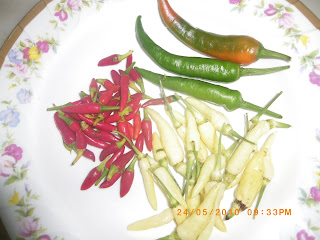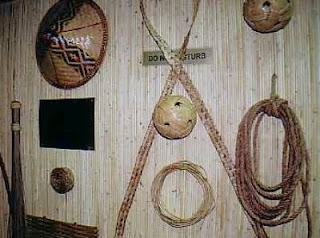Lands, as any Dusun can tell, are valuable commodities. Our foreparents riches were measured by how many acres of lands they had, apart from how many buffaloes they owned. Lands and buffaloes continue to be valuable nowadays but people seem to be making do without buffaloes. Lands, however, are a different case. They are still very much sought after, no matter how ridiculous the price might seem to be.
Yesterday we went on mission almost impossible; to find plots of land at the suburb of KK. It started with a friend, who heard on grapevine that someone was selling their land. I thought at 50k/acre, the price was a bit steep, but tagged along with hubby anyway. It was somewhat hilarious, a bunch of fortysomething Dusuns in search of land, reunited after over 20 years (they are all my hubby's batch and juniors at the uni).
From the friend's house, we drove up the scenic hills. The view was indeed breathtaking, KK on the right hand side, the Kinabalu Mountain on the left. I made up my mind to want the land but our spirit was crushed upon stopping at a shop by the roadside. We were told that the owner of the land had sold his 15 acre land, for 80k per acre. I almost drooped to hear the news. 80k per acre? Wow, people can really make money from land. Anyway, in seconds, our dream to build a little kampung on top of the hill, facing the two most beautiful views in KK; the mount Kinabalu and the city, crushed, or so I thought.
It is however not the end of the mission. Hubby's friends are still determined to find a nice place for their retirement. And the more I think of it, the more interesting the idea seem to be. It would be wonderful to have a place on top of the hill, with a lazy creek flowing nearby, with nature sounds all around you, and wonderful people as your neighbours. What bliss...
(After that, we visited my cousin's plot of land in the area, on which he is building his house. To reach there we had to trot a newly build road, all muddy and steep. It was a wonderful exercise although we really had to strain our underused muscles. We learned a little lesson about pioneering- that it took a lot of effort and endurance to own your own land :-))



